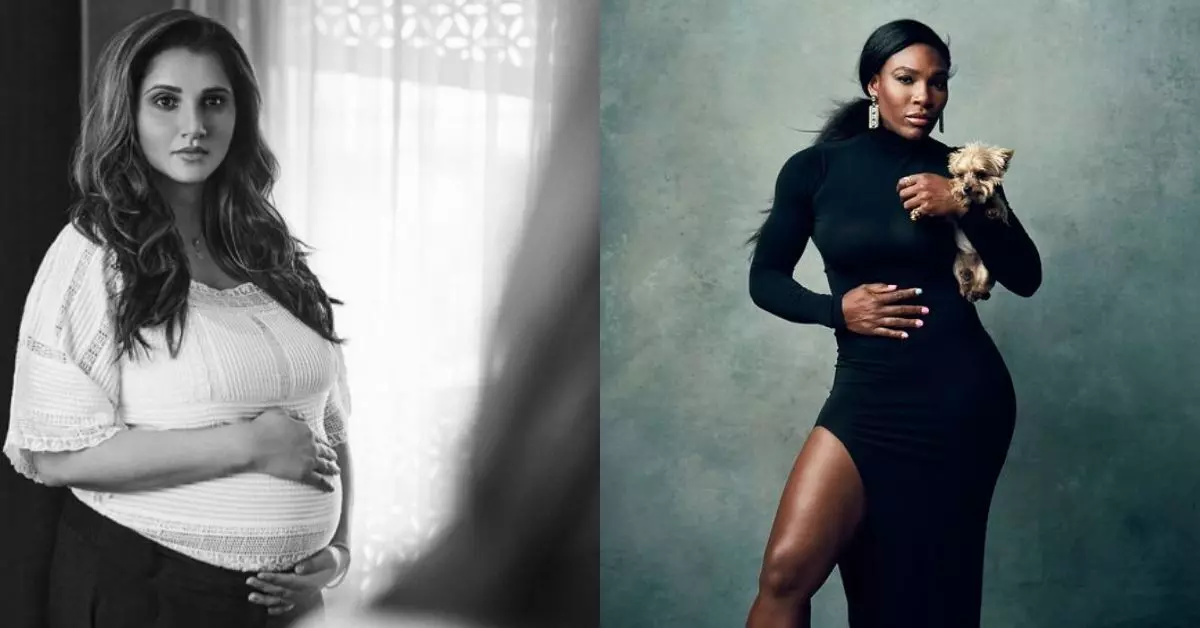Tennis
Sania to Serena: How sexist we are towards women athletes on the internet
Away from the make-belief world of 'equality' and 'gender-balance', the dark side of the internet reveals how objectifying and sexist we are towards sportswomen.

The outcry of feminism may be loud and clear - coming in strong waves, for the past few decades but away from all that razzmatazz, the search suggestions on the layman's browser is a sharp reality check of the sexism and misogyny permeating in broader reality.
Strange, idealistic words like 'equality' and 'gender-balance' may have made their way into the mix but they seem to exist only as hollow words - removed from reality.
A quick search on Google or any other browser of any famous woman athlete - be it the 6-time Grand Slam champion Sania Mirza or the 23-time Grand Slam champion Serena Williams, will end up offering a plethora of search suggestions leaning towards their 'female' aspect, rather than their role as a player.
The idea of women playing sports is an accepted anomaly and it comes as no surprise hence that search suggestions would offer results that do not tether to their identity as a sportswoman but rather as a mere woman - defined by her 'body', her 'age', her 'husband', her 'sexy' quotient and her 'love life'.
Take the Olympics, for example - when the first flame was lit in Athens in 1896, the founder of the Games - a French aristocrat by the name of Pierre de Coubertin had wonderfully summarised the idea of the event as - " . . . the Olympic Games represents the solid period of manifestation of male sports based on internationalism on loyalty as a means, on arts as a background, and the applause of women as a recompense."
Historically marginalized and discriminated against, women in sports have had to cross many hurdles yet the one reserved to the space of the search engine is still a battle remaining to be won. As much as we may want to shrug away the reality staring at our face and hold the placard of 'Equality' up high, the truth remains that objectification and misogyny are still very much a part and parcel of everyday life.
As the Tokyo Olympics gears up to become the first gender-balanced Olympics in the history of the Games as it will see an almost equal representation of male and female athletes, these search suggestions reveal that perhaps, the yardstick for measuring this balance is still flawed.
Let's take a brief pop culture detour and remember the first Transformers movie where director Michael Bay uses the lens of scopophilia to introduce the character of Megan Fox - it's an all-too-obvious trap the audience is invited to watch as the camera pans selectively to give us more idea about the 'bodily' aspect of the character, more than anything. Objectification, much?
Pop culture is known for exploiting this since forever - cue item songs, Bond girls, et al. However, sports also fall prey to the same kind of objectification when it comes to its women athletes. It might be the 21st century and we are expected to be more 'aware' as a generation but even now, tags of being 'sexy', 'beautiful', 'hot' are awarded to women after putting them on a scale.
This is not a women-only issue however, even men athletes are subjected to the same. However, the degree of objectification is a jarring departure from that applied to women.
In fact, in the run-up to the Tokyo Olympics, Germany's 22-year-old track and field star, Alicia Schmidt has been hailed as the 'World's Sexiest Athlete' by a number of websites and her supporters after she confirmed her participation in the 4x100 m women's and mixed team relays.
So, who is responsible for this 'search' sexism?
Ease your guns a little - they don't need to point at the all-too-revealing search engines yet. Rather, perhaps it needs some self-pointing to be done here.
There is a symbiosis at work when it comes to offering search suggestions as telling as this. As with any statistical study we attempt, the data we work with stems from the general census.
The algorithm of any browser - be it a Google or a Safari banks on the user search history to a certain extent and the other half of it, collects the general search tendencies of the majority and together, they are blended to offer the list of suggestions. Often, these search results lead to the spewing of negativity, especially on Twitter and other social platforms.
The real question therefore lies in the mentality of the user rather than the algorithm here. More than the achievements of these top-level female athletes like Sania Mirza or Serena Williams, the general interest of people is found to lie in their personal lives. Male athletes however do not enjoy this form of attention or this extent of objectification, at all.
With Sania Mirza, the results are only too controversial given the whole Indo-Pakistan crossover courtesy of her marriage to former captain of the Pakistan cricket team, Shoaib Malik. In recent media history, Sania Mirza's son - Izhaan Mirza Malik became the talking point as questions were charged as to which country will he go on to represent, if he chooses to play a sport - India or Pakistan?
As problematic as the searches may reveal to be - both normally as well as in the Incognito mode, it mirrors the masked reality only too well. The onus is really on us to change this mentality, chip at it till we can achieve a 'balance' for real and not for make-belief only.

